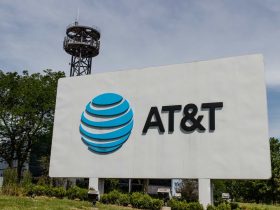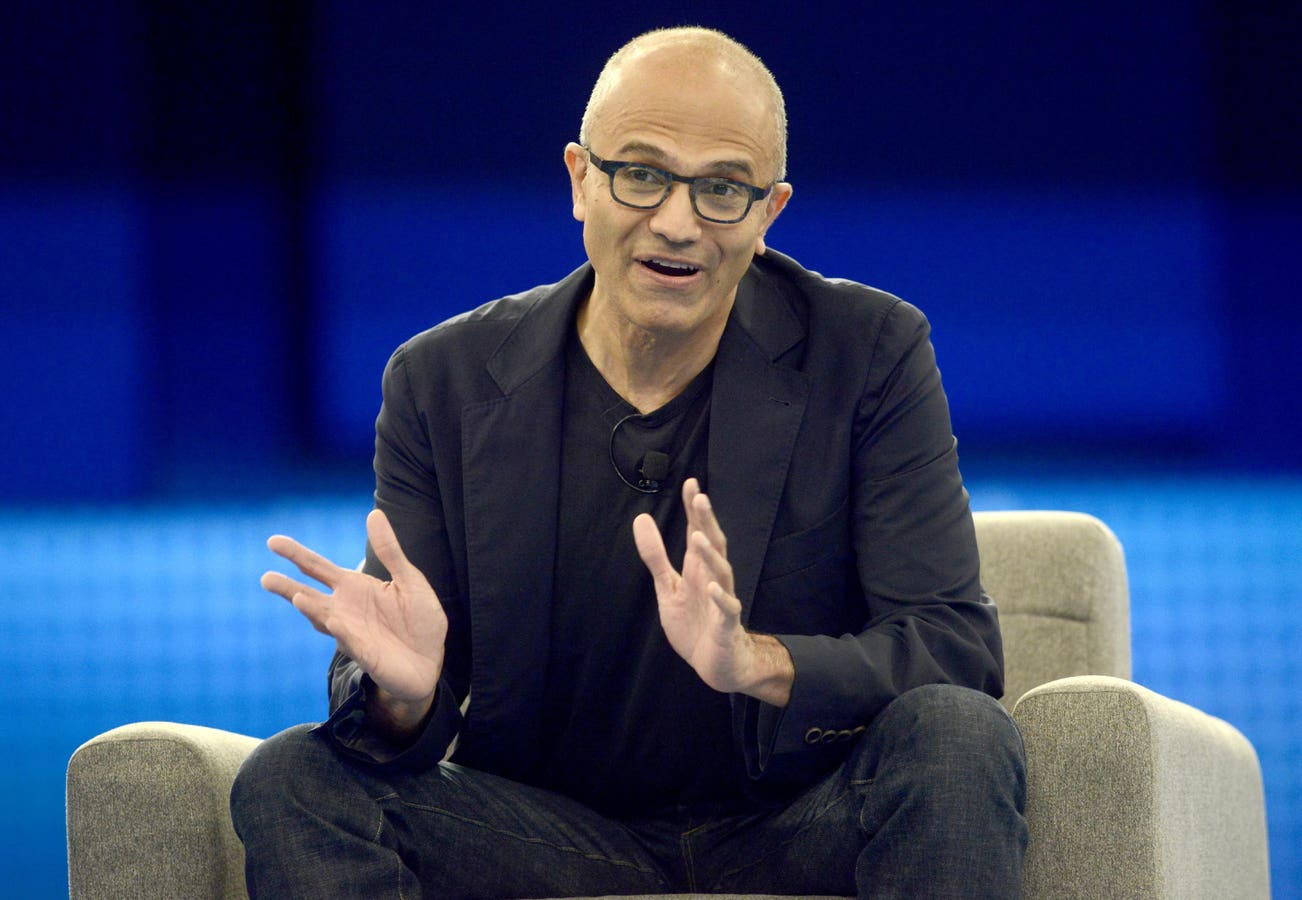Microsoft’s early lead over Alphabet in Generative AI is paying off. How so? After the two tech giants reported third quarter results Tuesday, Microsoft stock rose 6% while Alphabet shares eased 7% in after-hours trading.
Why the different trajectories of these stocks? Nearly a year after Microsoft launched ChatGPT, the answer is in the cloud. While Microsoft’s Azure revenue grew faster than investors expected, Alphabet’s cloud revenue disappointed, according to CNBC.
Why did Microsoft prevail in cloud services? The software giant’s OpenAI customer count rose 65% and Azure’s revenue share from Generative AI grew to 3%, CNBC reported.
By contrast, in response to investor questions about monetizing Generative AI, Alphabet CEO Sundar Pichai said it’s still “early days,” CNBC noted.
This is ironic since former Google researcher Aidan Gomez — now CEO of Cohere, a large language model startup — co-authored the 2017 paper on transformers that contributed heavily to the success of Generative AI chatbots.
Microsoft’s successes intensify the pressure on CEOs to answer the key question: Is your company monetizing Generative AI?
Microsoft’s Expectations-Beating Fiscal Year 2024 Q1 Earnings
Microsoft exceeded FY 2024 Q1 expectations and raised guidance. Here are the key numbers, from CNBC:
- Q1 revenue up 13% to $56.52 billion — more than $2 billion above analysts’ expectations.
- Q1 earnings per share up 27% to $2.99 — 35 cents per share above expectations.
- Q1 Intelligent Cloud revenue up 19% to $24.26 billion — $761 million above consensus among analysts surveyed by StreetAccount.
- Q2 revenue forecast up 15% to about $61 billion — roughly equal to the consensus.
- Q2 Azure growth forecast of 26% to 27% — after 28% Q1 growth. Microsoft CFO Amy Hood said Azure expects “an increasing contribution from artificial intelligence,” CNBC reported.
Investors are focused on Microsoft’s cloud results and Generative AI revenue. Cloud customers are seeking to get more benefit from their spending on Microsoft’s product.
The company is “still helping customers use the Microsoft Cloud to get the most value out of their digital spend,” CEO Satya Nadella said in the earnings release. Hood said clients “are still finding ways to save money on cloud spending,” CNBC noted.
Perhaps most importantly, Microsoft is putting numbers on the payoff from its investment in Generative AI. The software giant reported its Azure OpenAI Service customer count has grown 64% to 18,000 since July 2023 because Azure has higher capacity resulting from more graphics processing units.
Hood said about three percentage points of the Azure unit’s growth was attributable to AI — more than the 2% she forecast in July 2023, CNBC reported.
Microsoft’s capital expenditures increased 70% from a year earlier to a record $11.2 billion. This increase reflects the company’s “investment in AI,” the Wall Street Journal reported. While still a small business for Microsoft, “analysts and investors expect it to start contributing to the company’s bottom line in a much larger way in the future,” the Journal noted.
Microsoft did not specify the revenue lift from the company’s 365 Copilot AI add-on for existing productivity software subscriptions. The company will charge $30 per person per month for Copilot which will become available to large companies Nov. 1. Hood said Copilot’s revenue would “grow gradually over time,” CNBC reported.
Alphabet’s Unsatisfying Q3 Results And Forecast
Alphabet’s third quarter results were mixed — with strong growth in advertising but disappointment in its cloud growth. Here are the key numbers, according to CNBC:
- Q3 revenue up 11% to $76.69 billion — $720 million above LSEG’s tally of analysts’ expectations.
- Q3 earnings per share of $1.55 — 10 cents per share above expectations.
- Q3 YouTube advertising revenue up 19% to $7.95 billion — $161 million above consensus among analysts surveyed by StreetAccount.
- Q3 Cloud revenue up 22% to $8.41 billion — $230 million short of consensus, according to StreetAccount.
Alphabet was proud of the performance by its cloud unit. Cloud growth “remained strong across geographies, industries and products,” said CFO Ruth Porat on the investor call. Nevertheless, cloud “clients [were] reeling in their spending,” according to CNBC.
One analyst expressed hopes Alphabet’s cloud unit would grow faster and more profitably. In an interview with CNBC, Portfolio Wealth Advisors Chief Investment Officer Lee Munson said, “If you want this stock to keep going higher, you’ve got to have cloud become more profitable. It’s a third-rate cloud platform. We need to see it make money.”
Investors asked about how Alphabet would monetize its Generative AI investments. “We’ll do everything that is needed to make sure we have the leading AI models and infrastructure in the world, bar none, and will continue driving efficiencies from there,” Pichai said, per a Journal report.
Could Alphabet Deliver A Generative AI Upside Surprise?
Investors seem to be evaluating Microsoft and Alphabet based on their expectations for cloud services growth. Microsoft demonstrated Tuesday the strong connection between ChatGPT and growing customer demand for cloud services.
I am not surprised analysts asked Pichai about how Alphabet will monetize its Generative AI investment. “The topic of how the company will monetize AI came up several times throughout Tuesday’s conference call’s question-and-answer portion with investors and analysts,” CNBC reported.
Since ChatGPT’s November 2022 launch, Google has released its own chatbot, Bard. Among its other AI experiments is Search Generative Experience — “which lets users see what a generative AI experience would look like when searching for products,” noted CNBC.
Analysts asked Pichai about SGE. Lloyd Walmsley of Deutsche Bank said, “As we just think about the rollout of SGE across a user base. Like, how far along is that? And how do you balance the product rollout and consumer uptake versus monetization in that transition?,” CNBC wrote.
Alphabet’s response was relatively vague. “On the first part of our SG, we are still very early days in terms of how much we have rolled it out. But we have definitely gotten it out to enough people and both geographically across user segments and enough to know that the product is working well,” Pichai responded.
Despite the vagueness, Alphabet revealed some room for hope of monetization in two areas:
- YouTube. For YouTube advertisers, AI is helping businesses find “their ideal audience for the lowest possible price,” according to Alphabet’s Chief Business Officer Philipp Schindler. “Early tests are delivering 54% more reach at 42% lower cost” — helping “brands like Samsung and Toyota,” Schindler added.
- Performance Max. This service enables advertisers to access all of their Google Ads inventory from a single campaign — which was recently updated with AI features. ″Those using it achieve like an average over 18% more conversions at a similar cost per action,” according to Pichai, who added per CNBC’s report that 80% of Alphabet advertisers already use at least one AI-powered search feature.
If Alphabet — which seems to be downplaying Generative AI revenue in the near term — can do better than expectations, buying its shares on today’s dip could be a good bet.
Read the full article here













Leave a Reply